World
Biden and Putin talk by phone amid rising Ukraine tension
Biden and Putin talk by phone amid rising Ukraine tension
Joe Biden and Vladimir Putin talked by phone for over an hour on Saturday in what is widely seen as a last-ditch effort to fend off a Russian invasion of Ukraine which the US has warned could start as early as Wednesday.
The White House said that the Kremlin had suggested the call and Biden had accepted, and it began shortly after 11am Washington time, ending just over an hour later.
A statement said that during the call Biden made clear if Russia undertakes a further invasion of Ukraine the US and allies “will respond decisively and impose swift and severe costs on Russia”. It added that the US was “prepared to engage in diplomacy” but “are equally prepared for other scenarios”.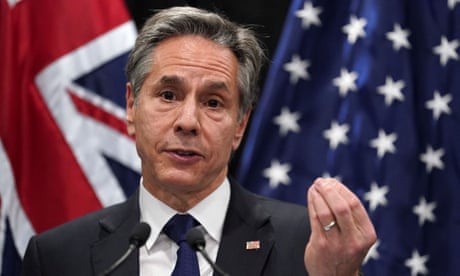
Earlier in the day, Emmanuel Macron held a separate conversation with the Russian leader, which was reported to have lasted one hour and 40 minutes, in which the French president said a “sincere dialogue” was incompatible with the escalating tensions, as Russia continued to move troops from staging areas to positions closer to the border. Moscow did not immediately publish its version of the call.
The US secretary of state, Antony Blinken, also talked to his counterpart, Sergei Lavrov, earlier on Saturday to call for “a diplomatic resolution to Russia’s unprovoked military buildup around Ukraine”.
“I reiterated that further Russian aggression would be met with a resolute, massive, and united transatlantic response,” Blinken said.
The US has said there was a high risk of a Russian attack on Ukraine before the end of Winter Olympics in China on 20 February, and the CIA was reported to have briefed allies that Russian troops have been ordered to be ready by Wednesday.
Lavrov accused the US of ignoring its security proposals, which include a guarantee that Ukraine would not join Nato and a withdrawal of Nato forces from eastern Europe, and he denied there were any plans for an attack, saying US warnings were part of a propaganda campaign.
“After Russian troops finish drills and return to barracks, the west will declare ‘diplomatic victory’ by having ‘secured’ Russian ‘de-escalation’,” the Russian foreign ministry quoted him as saying, describing it as a “predictable scenario and cheap domestic political points”.
Both the US and Russia began rapid evacuations of their embassies. The US state department said a small number of diplomats would stay in Kyiv to keep channels of communication open with the Ukrainian government, some will pull back to Lviv in the west to provide emergency consular services, while most will be posted in neighbouring countries.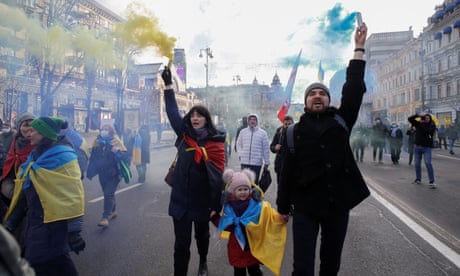
“I think prudence requires us to assume to plan for, and prepare for, a worst-case scenario and the worst-case scenario would obviously involve substantial Russian attacks on the Ukrainian capital,” a senior state department official said.
“These developments mean for private American citizens that it isn’t just time to leave Ukraine – it is past time for private citizens to leave Ukraine,” the official added, stressing that the consular staff were no longer in a position to help private citizens leave.
Western intelligence agencies have predicted that a Russian attack would be immediately preceded by a fabricated pretext, such a “false-flag” attack on Russia or the Donetsk and Luhansk regions run by Moscow-backed separatists.
Michael Kofman, the director of Russia Studies at the Center for Naval Analyses, said the Russia Duma was due to consider recognition of Donetsk and Luhansk as independent republics on Monday.
“14 February looks like it may offer a basis for Russia to extend security guarantees, and militarily protect those considered to be Russian citizens living in the separatist regions,” Kofman said on Twitter. “This may be interpreted as a clause which formally authorises the Russian state to use force in Ukraine.”

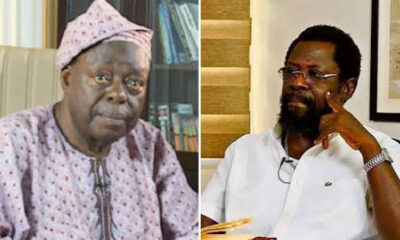
 Top Stories7 hours ago
Top Stories7 hours agoDele Farotimi Speaks on Lying Against Afe Babalola After Gaining Freedom

 News16 hours ago
News16 hours agoBREAKING: OZA CARNIVAL SECURES TOLARAM GROUP, ZENITH BANK PARTNERSHIPS
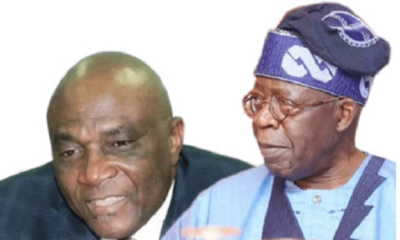
 Politics7 hours ago
Politics7 hours agoPDP Picks Holes In President Tinubu’s Media Chat
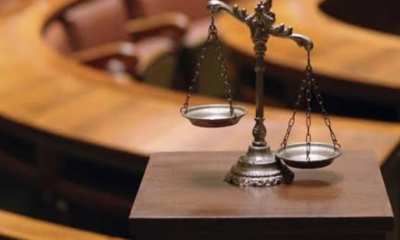
 Top Stories7 hours ago
Top Stories7 hours agoCourt Orders DSS To Release Miyetti Allah President Pending Trial

 News7 hours ago
News7 hours ago100+ Merry Christmas Wishes and Prayers to Send to Family & Friends on Xmas 2024
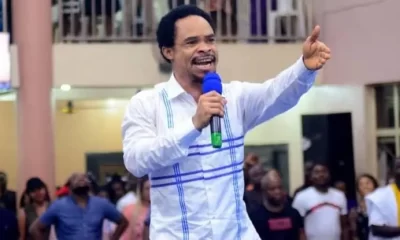
 Entertainment6 hours ago
Entertainment6 hours agoProphet Odumeje issues warning to those discrediting his miracles

 Entertainment6 hours ago
Entertainment6 hours agoComedian AY Clarifies Claims Of Shading Funke Akindele, Toyin Abraham,Ladies In Hollywood

 Entertainment5 hours ago
Entertainment5 hours agoSeyi Edun wins hearts as she makes peace with Toyin Abraham, shows support for her new movie; Toyin reacts (Video)







